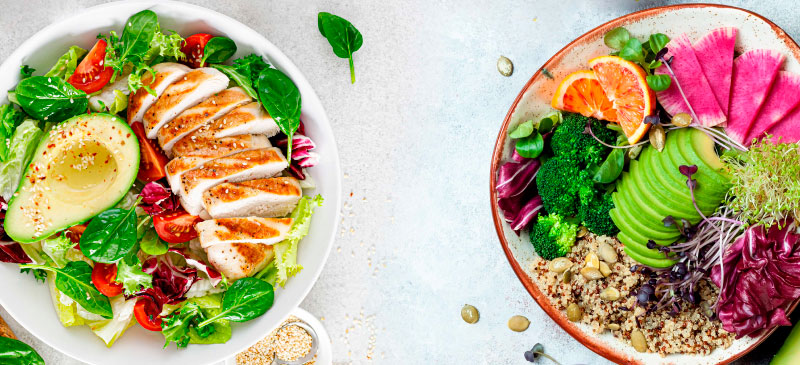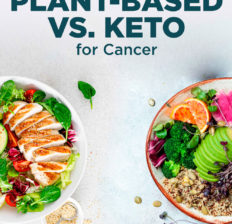This Dr. Axe content is medically reviewed or fact checked to ensure factually accurate information.
With strict editorial sourcing guidelines, we only link to academic research institutions, reputable media sites and, when research is available, medically peer-reviewed studies. Note that the numbers in parentheses (1, 2, etc.) are clickable links to these studies.
The information in our articles is NOT intended to replace a one-on-one relationship with a qualified health care professional and is not intended as medical advice.
This article is based on scientific evidence, written by experts and fact checked by our trained editorial staff. Note that the numbers in parentheses (1, 2, etc.) are clickable links to medically peer-reviewed studies.
Our team includes licensed nutritionists and dietitians, certified health education specialists, as well as certified strength and conditioning specialists, personal trainers and corrective exercise specialists. Our team aims to be not only thorough with its research, but also objective and unbiased.
The information in our articles is NOT intended to replace a one-on-one relationship with a qualified health care professional and is not intended as medical advice.
Evaluating a Plant-Based Diet vs. Keto Diet for Cancer
August 2, 2022

As cancer and metabolic disorder rates rise simultaneously, researchers have evaluated the effects of nutrition and what types of diets have a greater impact for cancer prevention.
A recent review of data found that when looking at a plant-based diet vs. keto diet, two diets that have become popular in oncology, plant-based eating may have greater benefits for cancer incidence reduction.
Study Findings: Plant-Based vs. Keto Diet for Cancer
A July 2020 review published in JAMA Oncology evaluated a plant-based diet vs. keto diet for cancer reduction. Although the two diets are starkly different, both are associated with weight loss, reduced inflammation and decreased insulin levels, according to researchers.
A plant-based diet is also associated with increased fiber and phytochemical intake, while the keto diet has exhibited anticancer effects by increasing beta-hydroxybutyrate, a ketone that has been studied for its impact on cancer cells.
An analysis of data on both diets showed that there’s more support for plant-based diets as opposed to the keto diet as part of a lifestyle that’s associated with reduced cancer risk. However, researchers noted that there’s currently no rigorously tested approaches that support the recommendation of any particular diet to treat cancer.
What It Means
Researchers found that when comparing plant-enriched diets vs. keto diet for the reduction of cancer risk and improvement of metabolic disorders, the current collective evidence supports a plant-based diet.
The keto (or ketogenic) diet involves severely cutting carb consumption while increasing fat intake to switch the body into ketosis, a metabolic state that allows the body to burn fat for fuel instead of carbohydrates. The keto diet has proven to have antitumor effects and is thought to produce an unfavorable environment for cancer cells.
Plant-based diets include the consumption of fruits, vegetables, beans, legumes, nuts, seeds, whole grains and healthy fats. Interventional trials on cancer prevention have indicated that increasing fruit and vegetable intake, while reducing fat intake, is beneficial because it mitigates common cancer risk factors, such as inflammation, excess body fat and insulin resistance.
Studies have found that plant-based diets improve breast cancer treatment and prevention. A meta-analysis based on over 3 million subjects even found that plant-based diets reduced the risk of cancers of the digestive system.
While there’s evidence that both a plant-based diet and ketogenic diet may reduce the risk of cancer, a diet high in whole foods and lower in fats is more effective for the general population.
Cancer Prevention Tips
Because cancer is not a single disease, but a group of related diseases, there are many risk factors that may contribute to cancer incidence, including those related to your diet, lifestyle, environment and genes.
There are certain measures you can take to reduce the risk of cancer, including the following:
- Eat cancer fighting foods, including fruits, vegetables, healthy fats, nuts and seeds
- Maintain a healthy weight
- Avoid processed foods
- Avoid foods made with added or artificial sugars
- Engage in physical activity
- Get enough sleep
- Reduce stress
- Don’t smoke or drink alcohol excessively
- Drink filtered water
- Reduce the use of chemicals in and around your home
- Maintain healthy levels of vitamin D
Conclusion
- A recent review published in JAMA Oncology found that when comparing the effects of a plant-based diet vs. keto diet for cancer reduction or prevention, a plant-based diet appears to be more effective.
- Although there’s evidence that both diets may help to reduce cancer incidence or improve cancer status, a diet high in nutrient-rich fruits and vegetables, and low in fats, has proven to be beneficial for reducing cancer and metabolic disease.
- In addition to eating a diet rich in whole foods, other cancer prevention tips include maintaining a healthy weight, engaging in daily physical activity, avoiding processed and sugar-loaded foods, reducing chemical exposure, getting enough sleep, and drinking filtered water.








